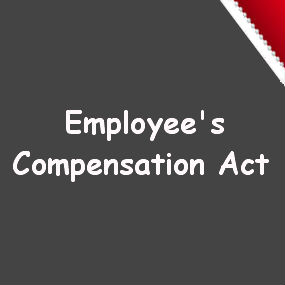Employee State Insurance Scheme
The ESI Act 1948 in the first instance, applies to non seasonal factories using power in the manufacturing process and employing 10 or more persons and non-power using factories or establishments employing 20 or more persons for wages. The provisions of the act are being implemented area wise by stages.
The act contains an enabling provision under which the "Appropriate Government" is empowered to extend the provisions of the Act to other classes of establishments-industrial, commercial, agricultural or otherwise. Under these provisions most of the state governments have extended the provisions of the ESI act to the following classes of establishments.
- Shops, hotels, restaurants, cinemas including preview theaters, road motor transport agencies and news paper establishments, etc employing 20 or more employees.
- Power using Beedi manufacturing process and employing 10 or more employees attract coverage under the act. A few states have even extended the provisions of the Act to non-power using Beedi manufacturing units employing less than ten persons.
- Slate pencil manufacturing units employing one or more employees have also been brought under the coverage of the Act in a few States.
The scheme has so far been implemented in 26 states and union territories; the only exceptions being a few smaller states in the north eastern region of the country.
REGISTRATION OF FACTORY ESTABLISHMENT:
Registration of a factory / establishment with the Employees' State Insurance Corporation is a statutory responsibility of the employer under Section 2-A of the Act read with regulation 10-B. The employer, in respect of a factory/ establishment to which the Act applies for the first time, is liable to furnish to the appropriate regional office within 15 days after the Act becomes Applicable, a declaration of registration in Form 01 (Employers registration form). This is obligatory on the part of the Employer. In addition to this, the employer will have to indicate, in a separate sheet, the name and address of the factory/ establishment, number of employees, nature of duty and name, designation and address of the Manager, controlling such persons in respect of any other office(s) situated outside the premises of the Factory/ Establishment.
CODE NUMBER:
a) On receipt of the Employer's Registration Form (Form 01) and Survey report submitted by the Insurance Inspector, the Regional Office examines the coverage and if it is satisfied that the Act applies to the factory/establishment, will allot a code number to the employer. Only one code number is allotted to a factory/establishment even though functionally it may have more than one unit/subunit within the same premises/precinct/station.
The code number so allotted is required to be indicated by the employer in all his correspondence with the corporation, Regional Office and Local Office.
SUB-CODE NUMBER:
b) There may be a case where an employer is having the main factory/establishment at one station and sub-unit, branch office or registered office at another implemented station, either within the same state or outside the state. In all such cases, Principal employer is required to furnish necessary details to the Regional Director concerned for allotment of sub-code number to each sub unit.
Return of contribution is required to be submitted separately for the main Code number and each Sub-Code number. Though the employer has the option to make compliance in respect of field offices, it is in the interest of the employer to make compliance in respect of the sub unit, independent of the compliance being made in respect of the main unit. The employees working in the branch office can draw/claim benefit locally from the nearby Local Office with which the branch office are attached. Similarly, it would be convenient for the workers to avail medical benefit from the nearby ESI dispensary in that state.
COVERAGE OF EMPLOYEES:
The term 'Employee' as defined in section 2(9) of the ESI Act, means any person employed for wages in connection with the work of a factory or an establishment to which the act applies. The term employee includes all those persons employed in clerical, manual, skilled, and semi-skilled supervisory
WAGE CEILING FOR COVEREGE:
The wage limit for coverage under this act is not exceeding Rs. 10,000/-P.M. per month (w e f 1st Oct 06).
An employee who is coverable at the beginning of a contribution period shall continue to remain covered till the end of that contribution period notwithstanding the fact that his wages may exceed the prescribed wage ceiling at any time after the commencement of that contribution period.
RATES OF THE CONTRIBUTION:
The rates of the contribution were last revised by the Corporation from 1st January 1997 and are still in vogue. These rates of contribution are:-
- Employees' Contribution – 1.75 percent of the wages
- Employers' Contribution – 4.75 percent of the wages
Total – 6.50 percent of the wages
Employees in the receipt of an average daily wage of Rs. 40/- or less, are exempted from payment of the share of contribution (w.e.f. 8.4.2000) but are entitled to all social security benefits under the scheme.
ADVATAGES TO EMPLOYERS:
Employers, who come under the purview of the ESI Act- 1948, derive the following benefits from the scheme:-
- Employers are absolved of all their liabilities of providing medical facilities to employees and their dependents in kind or in the form of fixed cash allowance, reimbursement of actual expenses, lump sum grant or opting for any other medical insurance policy of limited scope unless it is a contractual obligation of the employer.
- Employers are exempted from the applicability of the:
- Maternity Benefit Act,
- Workmens' compensation Act in respect of employees covered under the ESI scheme
- Employers have at their disposal, a productive, well secured workforce; an essential ingredient for better productivity.
- Employers are absolved of any responsibility in times of physical distress of workers such as sickness, employment injury or physical disablement resulting lass in wages, as the responsibility of paying cash benefits shits to the Corporation in respect of insured employees.
- Any sum paid by way of contribution under the ESI Act is deducted in computing 'income' under the Income Tax Act.
BENEFITS TO EMPLOYEES:
Under the ESI Scheme, the comprehensive and need based package of major Social Security benefits in cash and kind include:
- Medical benefit - for self & family
- Sickness benefit - for self
- Maternity benefit - for self
- Disablement benefit
a) Temporary Disablement benefit - for self
b) Permanent Disablement benefit - for self
- Dependants' Benefit - for dependants in case of death due to employment injury.
In addition, the scheme also provides some other need based benefits to insured workers. These are;
a) Funeral expenses - to a person who performs the last rites of an I.P.
b) Rehabilitation allowance - for self
c) Vocational Rehabilitation - for self
d) Old age Medicare - for self and spouse
e) Medical bonus - for insured women and IP's wife
An interesting feature of the ESI scheme is that the contributions are related to the paying capacity as a fixed percentage of the employees' wages, whereas, Social Security benefits are provided according to entitlement without any distinction of class or status. Medical benefit for self and dependants is provided at uniform scale from day one of entering insurable employment.
Read More ->>





